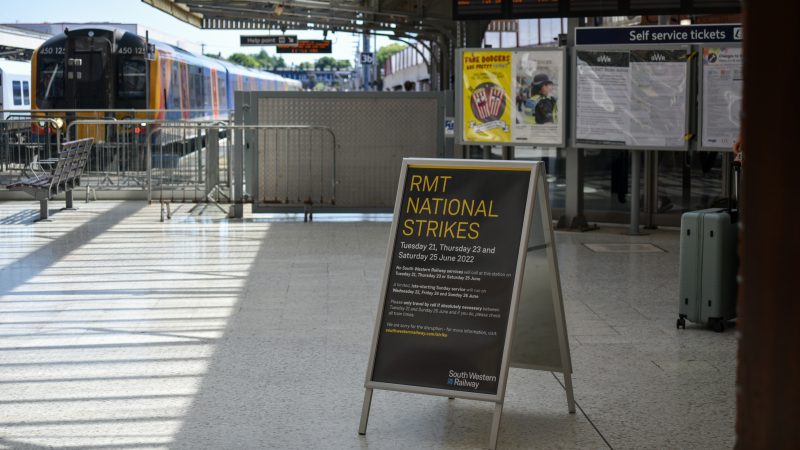
The TUC has accused Grant Shapps of preventing negotiations from taking place that could avert strike action after legal advice stated that he has “very significant contractual power” to direct how industrial disputes are handled.
According to legal advice from Michael Ford QC, commissioned by the TUC, the Transport Secretary has “legal power to give overall direction of how the dispute is handled” and that power is reinforced by “strong financial rewards and sanctions”.
Ford stated that private companies operating train services are not free to agree terms and conditions with their employees and it is the Transport Secretary who has “very extensive powers” over what can be agreed between them and unions.
Frances O’Grady said: “We all want to see successful negotiations to end this dispute. But the Transport Secretary Grant Shapps is giving secret instructions to rail firms from behind the scenes – and stopping them coming to a deal.”
The TUC general secretary added: “It’s time for the Transport Secretary to stop blocking an agreement that will end the dispute.”
RMT workers employed by Network Rail and 14 rail operators will take part in one-day strike action on Wednesday this week. TSSA members at Avanti West Coast will also be on strike on Wednesday. Members of ASLEF, working across eight rail operators, are scheduled to be on strike on July 30th.
According to the legal advice from Ford, rail operators must agree a mandate with the Transport Secretary before discussing any changes to pay, terms & conditions, redundancies, or restructuring with rail unions. Failure to do so means that the company can face financial penalties.
Shapps has issued a ‘dispute handling policy’ that operators must comply with and Ford advised that he has “overarching direction and control of the strike… either because the strategy is agreed with the Secretary of State or because the Secretary of State simply directs how the strike is to be handled”.
80% of train services were stopped during several days of strike action last month by RMT. General secretary Mick Lynch praised the “fantastic” turnout of members, at the time, and said they had “exceeded expectations in our struggle for job security, defending conditions and a decent pay rise”.
Labour’s Louise Haigh stressed shortly before the 40,000 members were due to walk out that the action could be avoided if ministers “step up and show leadership” but argued that Shapps was instead “washing his hands of any responsibility” rather than intervening to avert the strikes.
The Shadow Transport Secretary said strikes by Welsh railway staff had been avoided by the Labour-run government working with employers and unions “to manage change and avoid the disruptive action that this government is about to oversee”.




More from LabourList
‘Factionalism at the top Is weakening Labour – and handing a gift to Reform’
‘Europe must stand strong on its own as US security guarantees grow conditional’
‘Tackling poverty should be the legacy of Keir Starmer’s government’